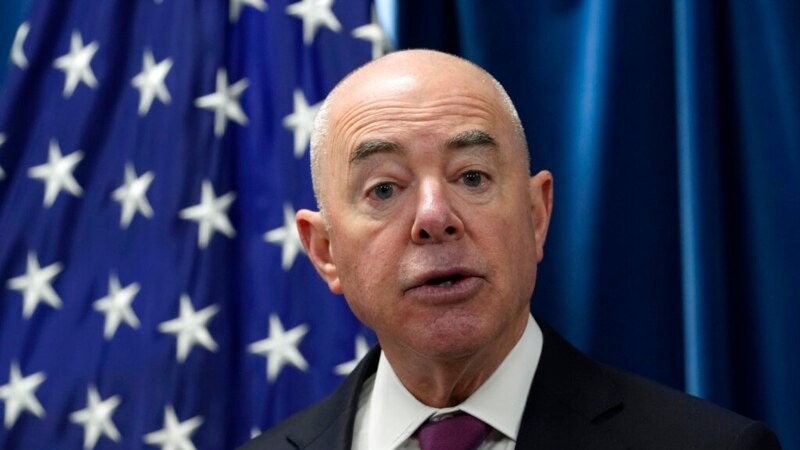U.S. President Joe Biden announced measures Thursday to prevent migrants from entering the United States without authorization from Mexico, while offering a new pathway to legal entry for up to 30,000 people a month under its “humanitarian parole” program now available to refugees from Ukraine and Afghanistan.
Secretary of Homeland Security Alejandro Mayorkas told VOA that online applications for humanitarian parole for Cubans, Nicaraguans, Haitians and Venezuelans will start “immediately, whether it’s today or tomorrow, but immediately we’re going to begin making this program accessible.”
“It’s extraordinarily important that we provide a safe, humane, orderly way for individuals to arrive at the United States,” Mayorkas said in a White House interview.
The following transcript has been edited for brevity and clarity:
VOA: How is the Department of Homeland Security dealing with the arrival of hundreds of Cuban and Haitians by sea to Florida?
Mayorkas: What we have done historically, and we are continuing to do, is to deploy our United States Coast Guard, which interdicts individuals seeking that perilous journey and returns them to Cuba or to a different country, depending on the circumstances. Do not take to the seas. We have seen too much travesty.
VOA: Are you expecting an increase in people coming by sea from Haiti and Cuba after this announcement?
Mayorkas: We’re watching it very closely. That would be a grave mistake for people to do it. They will not succeed. We will exercise our legal authorities. People who take these irregular paths, these dangerous paths, not only risk their lives, but they risked their lives only to fail in their mission.
Because what we are doing is, we are providing lawful pathways, but we’re delivering consequences for people who don’t use those lawful pathways that we’ve made available to them. So, they will be expelled under Title 42 or returned under our Title 8 authorities.
VOA: Once Mexico accepts those 30,000 migrants that they agreed to accept every month, what happens if more people continue to come to the U.S. border? What will happen to them?
Mayorkas: Mexico’s decision is a decision that Mexico made independently, unilaterally. … What I said earlier today stands true: We’re going to respond to what we experience at our southern border. And so, we will accelerate or add additional measures that will respond to the situation, because we are very committed to providing humanitarian relief, but we are very committed to providing that relief in a safe and orderly way and delivering consequences for people who don’t use them.
VOA: Have you reached agreements with other countries to take migrants?
Mayorkas: We have worked throughout the region with other countries. This is a regional challenge. So many countries are experiencing increased migration; the displacement of people is unprecedented. We’re working with those other countries. Take a look at Colombia. Colombia has accepted 2.4 million Venezuelans. Costa Rica is accepting now an unprecedented number of Nicaraguans. A regional challenge requires a regional solution.
VOA: But you can’t send Venezuelans back to Venezuela, for example?
Mayorkas: We do not have a relationship with Venezuela. Venezuela does not accept the return of its citizens.

